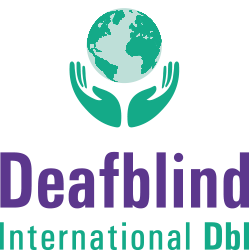Deafblind International:
Deafblind International DbI, in close collaboration with the World Federation of the Deafblind WFDB, is THE point of connection in deafblindness worldwide. A global network of more than 1300 individual members and about 70 dedicated organisations, we CONNECT TO ACT: Maximizing positive impact with and for all persons concerned and involved. On this mission, our Global Education Campaign is one of our most important projects.
National Federation of the Deaf Nepal
The National Federation of the Deaf Nepal (NDFN) is the nation’s premier civil rights organization dedicated to advocating for the rights and empowerment of deaf citizens in Nepal established in 1995. With a robust network of 53 affiliated deaf associations, seven province committees, NDFN is a non-governmental, non-political, non-profit, and self-help social organization committed to fostering an inclusive society for the deaf community. NDFN is at the forefront of the development and dissemination of Nepali Sign Language, striving to establish it as a formal language for broad communication and educational purposes. NDFN’s mission is to lead and support initiatives that enhance the quality of life for deaf people through advocacy, education, and community building. We are dedicated to ensuring that every deaf person in Nepal has access to the resources and opportunities necessary for full and equal participation in society.
As a key stakeholder in the field of deafblindness, NDFN recognizes the crucial role of sign language in communication for individuals with deafblindness, alongside haptic signals and tactile communication methods, which are predominantly based on sign language. NDFN is currently leading the National Resource Center on Deafblindness, which is working to bring positive changes in Nepal in the fields of education, health, parental awareness, and more.
Nepal Association of Blind (NAB)
Nepal Association of the Blind (NAB) is an umbrella organization found in 1993. It has expanded its branches in 7 provinces, 59 district & 53 Municipalities. with more than 4000 members across the country. It works for promotion and protection right and interest of the Blind and visually Impact people. Through loving and advocacy, policy intervention and service since 1993. It is affiliated with World Blind Union (WBU), Asian Blind Union (ABU), National Federation of Disabled Nepal-NFDN and Social Welfare Council (SWC).Our vision envisions a future where person with visual impairments lead self-reliant and dignified lives, through the guidance of the National Association for the Blind (NAB). Our mission is to empower the blind and partially sighted (BPS) community through advocacy, skill enhancement, and hands-on initiatives. Our goals revolve around organizing and strengthening the BPS community to establish the rights outlined in the UN Convention on the Rights of Persons with Disabilities (UNCRPD).
Nepal Association of the Blind (NAB) is dedicated to supporting persons with disabilities, with a particular focus on the needs of the blind and partially sighted in partnership with NABP Norway, DAB Denmark & Nepal Government.
Society of Deaf Blind Parents (SDBP)
The Society of Deaf Blind Parents (SDBP) is a non-profit organisation founded in 2005 by seven dedicated parents during a workshop aimed at recognising Deafblindness as a distinct disability in Nepal. Registered with the District Administration Office in Kathmandu and affiliated with the Social Welfare Council, SDBP is also a member of the National Federation of the Disabled Nepal (NFDN). Since its inception, SDBP has grown to 22 members with a nine-member executive board and a fully staffed secretariat. The organisation conducts awareness programmes across various districts, focusing on health, education, job opportunities, quality of life, and income generation for parents. SDBP actively screens children with deafblindness nationwide and engages with parents and caregivers from diverse backgrounds. Its initiatives target local communities and extend to new districts, striving to expand its reach and support for children with deafblindness and their families.
Deafblind Association of Nepal (DAN)
The Deafblind Association Nepal (DAN) is a non-governmental, non-profit organization dedicated to advocating for and supporting individuals with deafblindness across Nepal. Founded in February 2012 and based in Pokhara, DAN works tirelessly to create a barrier-free environment for people with deafblindness, promoting their human rights and inclusion in all aspects of society. The organization’s mission encompasses strengthening its effectiveness, advancing access to services, and campaigning against social injustices faced by the deafblind community. With a vision of fostering a fully inclusive society where persons with deafblindness can live self-reliant and dignified lives, DAN actively engages in uniting and advocating for this population, supporting self-help groups, promoting specialized communication methods, and working to integrate deafblindness issues into both public and private sector planning across Nepal
Sense International India
Sense International India, also known as Sense India, was established in 1997 as the first non-governmental organisation to support the development of comprehensive services for deafblind people throughout India. Sense India works with local organisations to develop sustainable services for deafblind children and adults and collaborates with the government at centre and state levels. In 1997, only 23 deafblind children received support, through only one centre in Mumbai. In the last 27 years, Sense India has enabled 80,000+ deafblind people to receive quality education, skills training and livelihood support through 60+ partner NGOs in India, Bangladesh and Nepal. Sense India also provides training for families to understand and integrate with their deafblind members. Sense India enjoys consultative status with United Nation and has initiated services for deafblind in Bangladesh and Nepal, including training of professionals in other neighbouring countries.
